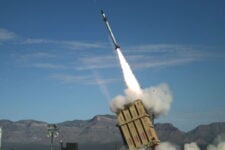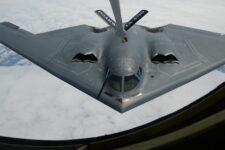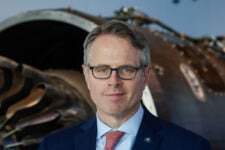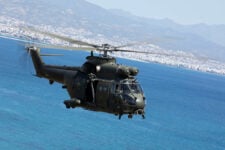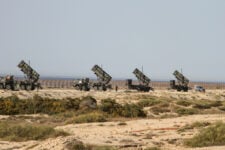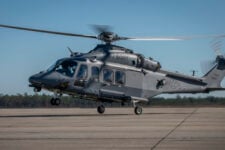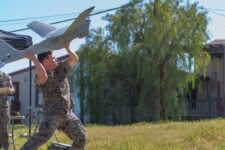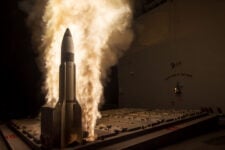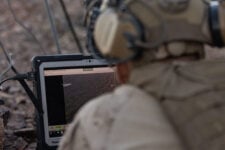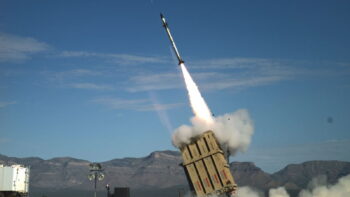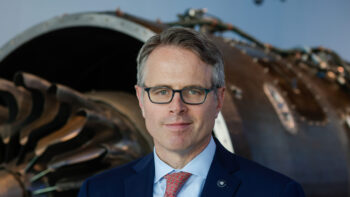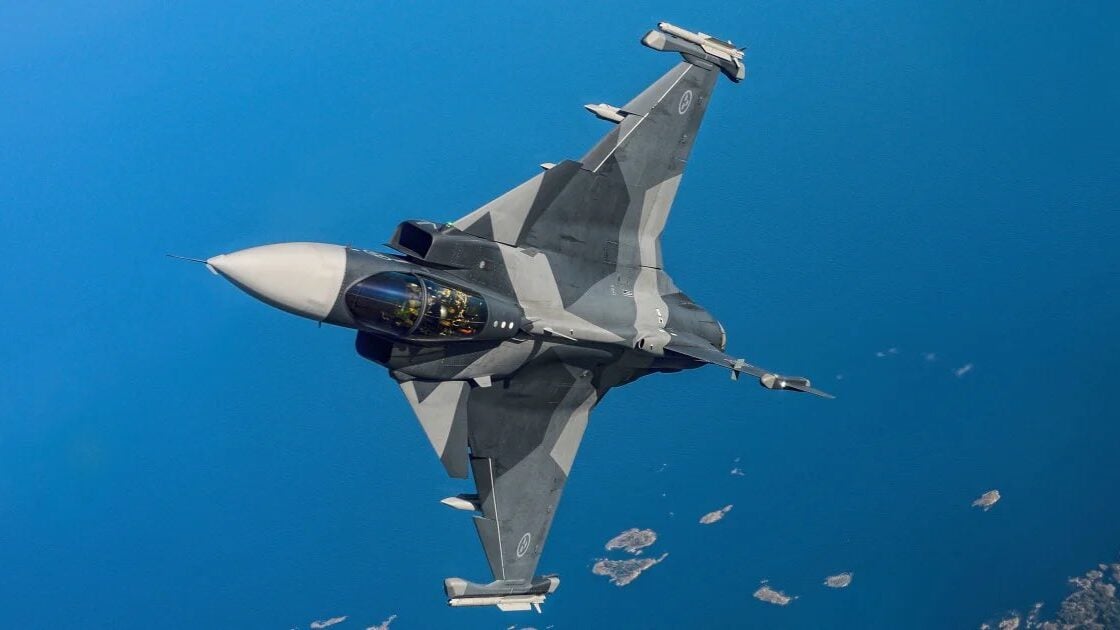
Sweden will wait until after the end of the decade to decide on a replacement for Saab’s Gripen fighter jet. (Saab)
MADRID — After joining and then leaving the UK-led Future Combat Air System (FCAS), the Swedish military is now holding off on deciding its path to a next-generation fighter jet until 2031, after it can assess the “risks and possibilities” with different approaches, an official said today.
Three options are on the table for Stockholm: Either “build a system, develop a system with someone, or… acquire a system,” said the official, speaking under Chatham House Rules at the International Fighter Conference here in Madrid. “It’s an open question.”
“We did have both bilateral and trilateral cooperation with Britain and also with Italy on the FCAS program,” said the official. “We walked away from that about a year ago and started some national studies… connecting to what capabilities are needed for the future.” The official declined to comment on the reason behind Sweden ending collaboration with the UK and Italy.
A decision has not been made by authorities so far on an Initial Operating Capability (IOC) date for whatever it chooses for a next-gen fighter, but a wide range of planning activities will inform the 2031 procurement decision.
Indicating some desired level of control by Sweden over a next-gen timeline, the official said Phase 1 will cover concept exploration between 2023 to 2025 with Phase 2 to address concept and technology development from 2026 to 2030. Operational analysis, system concepts and aircraft demonstrators are among the main lines of effort that are included across the two phases. Technology development activities will span from 2023 beyond 2030, while demonstrator planning will commence in 2026.
Disclosure of the long-term program planning comes after Sweden’s defense material agency (FMV) confirmed in September that it was prioritizing future fighter studies and “fact finding,” while Saab has also said it wants to be a “player” in the program, which would ideally include a role as a “systems of systems” integrator.
The French, German and Spanish Future Combat Air System (FCAS) program also known as SCAF and the Italian, Japanese and UK-led Global Combat Air Programme (GCAP), previously known as FCAS also, have both committed to a system-of-systems approach, where development of a next-generation fighter will allow them to control adjunct aircraft, effectors and sensors in ways previous combat jets have not been capable.
GCAP is expected to be in service from 2035, with FCAS five years later.
“One thing that has not been decided in Sweden is IOC for the next generation fighter, so therefore that is quite a challenge because we need to be agnostic. … We can’t just look into one technology level and align that [development] to an IOC time,” said the official. He added that “risks” and “possibilities” must be weighed so a procurement decision can be reached, including what role Swedish government and industry would play in development.
“What has happened is that we have had a decision to go fully into a concept phase for the next-generation system, that [approval] happened the week after midsummer this year,” explained the official. “So what we will do is, we will need to deliver concepts, both on the system [a new fighter] and also on a system-of-system level. We need to do technology development and integration activities. We need to build up the national competence both on the government side, but also on the industry side.”
Sweden has time on its side to deliberate about which path to take for a future fighter procurement as Saab’s Gripen E, the backbone of the Swedish Air Force, is meant to be operated until 2060. Older Gripen C/D aircraft are expected to be retired between 2035 and 2040, or beyond, because of the war in Ukraine, according to the official.
But holding off until the end of the decade to make a firm future fighter procurement commitment risks losing industrial influence over design requirements on GCAP or FCAS, if Stockholm so decides to join one or the other, though officials from each program have often stressed they continue to be open to new partners.
On that front, the Kingdom of Saudi Arabia continues to express interest in joining GCAP, though the UK has said there is “no definitive timeline” associated with making a decision on Riyadh’s potential involvement. Elsewhere, French President Emmanuel Macron announced in June that Belgium would join FCAS.
Lockheed, Howmet settle lawsuit over F-35 titanium (EXCLUSIVE)
Lockheed Martin alleged in court filings that Howmet cut off the supply of titanium after the aerospace giant refused to agree to higher prices, threatening production of the F-35.

